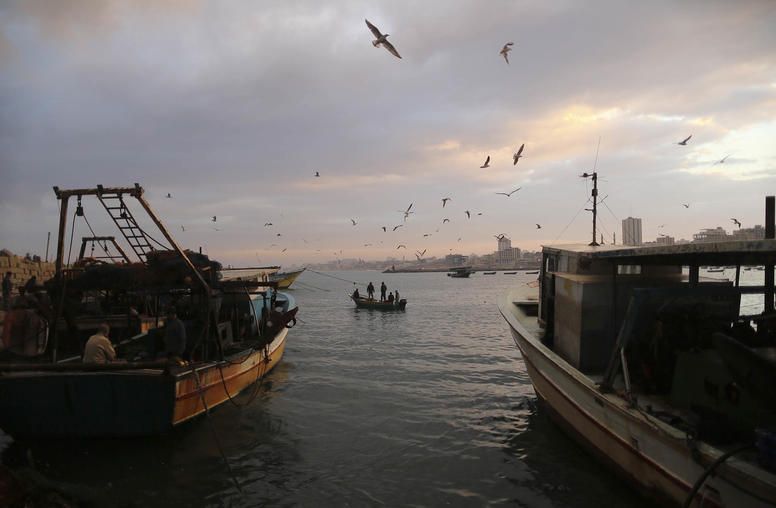Progress and Stability in the Middle East
USIP’s Steven Heydemann, vice president of the Grants and Fellowships program and special adviser to the Muslim World Initiative, describes the progress and challenges facing Egypt and Tunisia and how the U.S. can assist in stablizing the region.
March 15, 2011
 USIP’s Steven Heydemann, vice president of the Grants and Fellowships program and special adviser to the Muslim World Initiative, describes the progress and challenges facing Egypt and Tunisia and how the U.S. can assist in stablizing the region.
USIP’s Steven Heydemann, vice president of the Grants and Fellowships program and special adviser to the Muslim World Initiative, describes the progress and challenges facing Egypt and Tunisia and how the U.S. can assist in stablizing the region.
- How do you see things developing in Egypt and Tunisia?
- How is the military responding to these developments?
- What is happening in Tunisia?
- What can the U.S. do to facilitate their transition to democracy and stability?
How do you see things developing in Egypt and Tunisia?
Secretary Clinton is traveling to the Middle East at a critical moment. The euphoria that accompanied the fall of Hosni Mubarak in Egypt and Zine al-Abdine Bin Ali in Tunisia is giving way to the sober reality of the challenges associated with transitions to democracy.
In Egypt, the ruling military has maintained tight control over a transition process and timetable that have been criticized by the opposition. A referendum on amendments to the existing constitution has been scheduled for March 19. Yet popular reaction to the referendum has been broadly negative. Opposition leaders, respected public officials, and much of the Egyptian public characterize the proposed amendments as too limited, and are pushing to replace the constitution in its entirety. They have also criticized the proposed amendments as unwieldy and too complicated: among other things, they would require Egyptians to hold six elections in the next 18 months.
In addition, opposition leaders have criticized the transition process as moving too quickly, not providing the time that emergent political parties will need to organize effectively, and not offering Egyptians adequate opportunity to participate in the reform process. Among the opposition, only the Muslim Brotherhood has expressed its commitment to participate, reflecting its belief that a faster process gives an edge to those political forces in Egypt that already benefit from a well-developed political party structure.
How is the military responding to these developments?
The Supreme Council of the Armed Forces seems uncertain about how to respond to such concerns. The Egyptian press indicates that the Supreme Council is considering a delay in the referendum, and perhaps even a modification in the sequencing of the transition itself, shifting to a strategy in which presidential elections would be held first, constitutional amendments later. At the same time, spokesmen for the Supreme Council have warned against interference with the referendum. At present, it is not certain which view will prevail, although the military's impatience and determination to hand over power to civilians may overwhelm efforts to get the process right, rather than just get the process done with. Nonetheless, Egypt continues to make important progress in dismantling the infrastructure of the old regime.
Today, the Interior Minister, Gen. Mansour al-Eissawi, announced the dissolution of the State Security Investigation Service. Egypt's new leaders should be commended for taking such steps.
Secretary Clinton's visit offers an opportunity for the U.S. to affirm its support for a free, fair, and inclusive transition process, one that unfolds at a pace that respects the intent of the Supreme Council to transfer power to a civilian government, but does so through a timetable and sequence of steps that reinforce rather than undermine prospects for a democratic outcome.
What is happening in Tunisia
The transition process in Tunisia has encountered difficulties similar to those evident in Egypt, but thus far has managed to address them without significant disruption--despite protests in late February in which five people died. What is especially important about the Tunisian transition is the success with which new political leaders have moved to dismantle the institutional infrastructure of the former authoritarian regime. The ruling political party of Ben Ali, the Democratic Constitutional Rally, has been dissolved. So has the internal security apparatus that maintained the former regime in power. The government led by Prime Minister Beji Caid Essebsi has not yet provided a definitive transition timetable, but interim President Fouad Mebazza, has indicated that a vote will take place on July 24 to elect a council to rewrite the country's constitution, suggesting a more measured pace for reforms than has been the case in Egypt thus far.
What can the U.S. do to facilitate their transition to democracy and stability?
It is important for the U.S. to continue to affirm the "home-grown" nature of the Egyptian and Tunisian transitions, and to offer support and assistance in response to locally-defined priorities, and through frameworks that are mutually designed. The U.S. can play an active monitoring role, as well, ensuring that the timing and sequencing of transitions provide the strongest possible opportunities for the inclusion of all relevant opposition forces; that the negotiating frameworks through which new political institutions are formed are transparent; and that reform timetables do not disadvantage the opposition and provide adequate time for voters to become informed about the issues at stake. The U.S. can also play a role in reducing the economic and social disruptions associated with periods of political instability, helping to avoid economic crises that might place political gains at risk. In addition, the U.S., through nongovernmental as well as official channels, can lend support to opposition forces that request such help in developing their organizational capacity; can facilitate processes of constitutional reform should this be welcomed by local political actors; and can provide support for local processes of interfaith dialogue and reconciliation.



